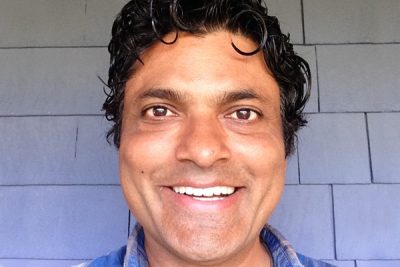‘Dirty' Booms, ‘Green’ Busts:
Economics Professor Searches for the Link between Carbon Emissions and Economic Activity

Professor Hashmat Khan
Ups and downs in the economy can be sparked by a number of factors. Professor Hashmat Khan’s research expertise lies in identifying which ones are the most important.
He learned about the link between emissions and the economy through discussions with his colleagues in Carleton’s Department of Economics. Assistant Professors Konstantinos Metaxoglou and Maya Papineau pointed out that booms are ‘dirty’ due to increased carbon emissions, while busts are ‘green’.
“It really caught my eye as a key aspect of how the economy functions,” says Professor Khan. “The two factors move together, but is the cause of rising economic output also the cause of rising emissions?”
Because determining the ultimate sources behind business cycles remains somewhat elusive and controversial in Economics, the output-emissions link could provide a novel way to pin it down. Professor Khan and his colleagues, in collaboration with Professor Christopher Knittel of MIT, are currently pursuing a SSHRC Insight Development Grant project to uncover the common link. They recently published a working paper on their research in the National Bureau of Economic Research, Cambridge, Massachusetts.
Professor Khan says one leading candidate for what triggers a boom or a bust is the anticipation of new technology, particularly in the machinery and equipment sector.
“It may be cheaper for a company to ramp up utilization of older machinery to increase output before upgrading to a new vintage, leading to an increase in emissions.” he explains.
While Professor Khan’s focus is on the economy, he says the research points to possible environmental policy changes as well.
“Should a carbon tax be adjusted depending on the state of the economy? Or should it be completely invariant to economic indicators?” He argues that “an environmental policy that takes into account the fluctuations in emissions is very likely to be superior to one that does not.”
Thursday, August 11, 2016 in Department of Economics, Featured Researcher, Research
Share: Twitter, Facebook



